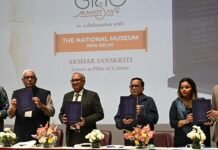Often one comes away from a purchasing negotiation with several reservations. Have we got the right price? Did we close the deal too soon? Or, would a little tact, a change of style or tone have broken the deadlock? A correct price or a satisfying deal is when both parties shake hands on what they believe is a mutually beneficial contract. Generally, there is also the underlying hope that mutual trust will continue and lead to good deals in the future as well.
The correct price makes all the difference – a price at which neither party hurts. But a beneficial contract encompasses a broader range of objectives. It includes the cost as a matter of course but also the delivery and payment terms, which could be cash or credit through a letter of credit at LIBOR rates. Every detail is essential, and a shrewd buyer covers all the possibilities. He comes to the table with a prepared plan for each eventuality and deals his hand like an astute card player in a poker game.
Sometimes he sacrifices one detail or condition or another – say a slightly higher price for a much needed and better line of credit. If he anticipates a critical inventory situation, he may compromise other terms for improved delivery.
But what happens if there is an impasse, a deadlock? One of the many ways is to soften your demands by prioritizing your objectives. But even if softening one’s stance doesn’t play, another tack might. Sometimes it helps to know a bit more about the seller’s background – where he or she is coming from. Courtesies, traditions, historical information, and cultural anecdotes, all can come in handy. I can share some examples from 40 years of experience.
A case in point is one of our negotiations with a world-renowned Japanese ink company. The Japanese tend to be soft-spoken and the epitome of business etiquette. They frequently bow at the beginning of a meeting and leaving, which is generally enough to put your guard down. When they want to be, they can, of course, be quite stubborn negotiators. In our experience, this ink company was generally quite courteous and willing to meet our demands halfway. However, on one occasion, when we were negotiating our annual contract for printing inks, the salesperson made his intentions clear right at the start. Having dug his heels in, he did not budge an inch or a yen till the end of the day.
We invited him for the customary dinner at a five-star hotel in very scenic surroundings, the table set for a six-course meal, and rounds of drinks. The hotel did not serve sake, and we had not thought of it – an error to be corrected in the future. Nevertheless, we started with a well-aged single malt whiskey, accompanied by starters of fried prawns, fish fingers, and so on. Even after three rounds, our guest was still wearing his war paint – an inscrutable look with no real signs of our guest giving away anything.
A sudden brain wave prompted me to talk about my fascination with the Japanese actress who acted as the slain warrior’s wife in the famous movie. I had forgotten her name, but could he put me wise? I was referring to the hit film ‘The Last Samurai,’ and our guest’s face immediately lit up. His entire expression changed into a beaming smile as he rattled off the actress’s name and all the accompanying male Japanese and American actors. He proudly related the history and traditions of the samurai no longer a neutral Japanese but as a proud descendent.
Taken aback that we knew about the movie, the actress, and some aspects of the Samurai tradition, he was a different person thereon. After the final after-dinner brandy, he sportingly said, “Let’s meet tomorrow morning and find a mutually acceptable price.” We did and bridged the price gap to the satisfaction of both sides.
Finland, Norway, and Sweden have virgin forests in plenty and can source all the raw material they want internally for manufacturing excellent newsprint. If needed, the Scandinavian newsprint manufacturers can reach out to Russia or the Siberian arctic forests. At the same time, Asian manufacturers have to use recycled paper for inputs, which result in newsprint with weaker strength, less brightness, and other factors that limit the speed of the newspaper presses.
Among the Scandinavians, the Swedes are among the oldest suppliers of newsprint essential for printing our newspapers. Among their many notable inventions is the matchbox. Both the Swedish Match Company and WIMCO were household names in India at one time. The Swedes come to a negotiation quite directly, without any foreplay or meandering. Not given to a relaxed smile, they come across as phlegmatic and taciturn. Purchasing negotiations tend to be brief compared to those with North Americans, for instance.
We were deadlocked in a price and delivery situation with a Swedish newsprint supplier that showed no signs of thawing until I came up with an inspired question, “You do have a king, but are you aware that his origin is not Swedish? This was a surprise to the team on the other side of the table.
I then narrated how, when Sweden did not have a royal heir, its government sent a request to the Emperor of Europe, Napoleon, to nominate one of his nobles to be crowned as their king. Napoleon sent his most dashing and successful general of royal lineage, Count Bernadotte, who was crowned as the king of Sweden.
I then added a bit of masala from the movie Desiree in which Napoleon, as a young cadet, falls in love with a young French girl but is prevented from marrying her. Eventually, the young girl Desiree marries Count Bernadotte and becomes the Queen of Sweden. At the end of the movie, there is a final twist when Napoleon is defeated at Leipzig in 1814, and ironically, surrenders his sword to Queen Desiree!
The shocked Swedes admitted this history of theirs was new to them – that their king was descendent of French royalty. Soon after, we found an amicable price, with expedited delivery to meet our needs!
There was a newsprint shortage in 1995-96. Our discussions with Canadian and Swedish suppliers were over. We were in the midst of conversations with British directors operating from Thailand and looking for a price, quantity, and newsprint delivery to meet our annual requirement. It was tough going to stitch up all three into a deal.
Recalling that to most Englishmen, Churchill in wartime was a heroic figure; I asked them whether they knew how his life was saved during the war, by an earlier act of kindness? And curiously enough, for the second time by the same man? I then narrated how Churchill as a boy while running, fell into a crevice at Blenheim, the family estate. He was saved by a playmate who took a considerable risk to extricate Winston. When he brought him back to his mother, Lady Churchill, Winston narrated his playmate Alex Fleming’s bravery to his mother, who was overwhelmed. She asked the boy, “What would you like to do in life, Alex?” Young Alex replied, “Ma’am, I wish to become a doctor, but do not have the means.”
Lady Churchill responded immediately, “Alex, you have saved my son’s life. We will happily meet the cost of your medical studies.” Both boys went their own way – Churchill became prime minister, and Alex became a doctor. During the second world war, Churchill suddenly fell ill with pneumonia. Although it was kept secret, a doctor was approached who had done some preliminary work on the new drug penicillin. Willing to try out the new drug to save the prime minister, he administered it successfully.
The doctor was none other than Dr Alexander Fleming, the discoverer of penicillin, and the first to apply it successfully. The first patient turned out to be his boyhood friend Winston whose life he had now saved for the second time.
Quite unaware of this bit of his country’s history, my British counterpart was impressed. He agreed to meet our terms and later sent me a book on Churchill, which I treasure. Such is life.
In short, negotiation is much more than bargaining. One always needs more than one string to one’s bow. And the moral of the story is, never give up! Never stop thinking; there is a time to think out of the box.
Suggestions for buyers
Know your supplier, company, capacity, age and country, history, and owners. When hosting a company or guests, make a special effort to know the guest’s favorite drink and preferred food.
Check with the hotel on the availability and knowledge of the bartender to mix the drink. Also, reserve a dinner table for the right number. Choose a conducive ambiance, for instance, the Japanese like gardens. Make a preliminary visit to check that everything is in order.
Before the initial meeting, have a checklist prepared in order of priority. If not completed in the earlier session, some items can be carried over to dinner in a more pleasant atmosphere.


















How many purchase managers will have the patience to listen to Emmy D’Silva? What comes through in this article? To me, that it never hurts to be educated and well-read and to think the long game apart from learning to play poker. He wants to build and maintain relationships and have fair dealings and like all good negotiators, makes his counterparts comfortable with a good table, a friendly menu, and an appropriate choice of wine. The main thing is he tries to understand where the other guy is coming from — both in the business sense and the cultural sense. Basic human empathy and fairness in dealings can go a long way in purchasing and in life.